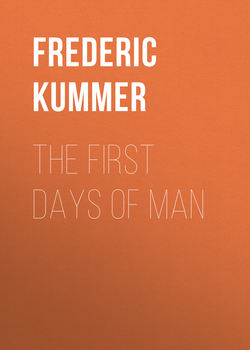Читать книгу The First Days of Man - Kummer Frederic Arnold - Страница 2
PREFACE FOR PARENTS
ОглавлениеEvery child, between the ages of five and fifteen, seeks by constant questioning to grasp the fundamental facts upon which our whole fabric of present-day knowledge is based. These facts, painfully gathered by the human race during its many centuries of development, must of necessity be absorbed by the child within the short space of some ten or twelve years. It is a prodigious task, and one in which the growing mind should be afforded every possible assistance. Two courses are usually adopted by parents; one, to dismiss the child's questions with the stock phrase, "You are not old enough to understand," the other, to place in his hands some so-called book of knowledge, containing, it is true, a great mass of information which the child should possess, but usually so badly presented, so jumbled together, that no one fact has any bearing on another, and thus the child is left to turn from "Why the ocean is salt?" to "What is a lightning rod?" without the least understanding of the principles and laws which underly these and all other facts, and link them together in a composite whole.
The writer has followed, with his own children, a method of presenting the steps in the gradual development of man which has produced most gratifying results. Instead of treating each fact, each laboriously accumulated bit of human knowledge, as a mere isolated patch in a crazy-quilt of information, he has attempted to arrange them in logical sequence, to form an interesting pattern, so that as the child's fund of knowledge increases, he feels a deeper and deeper interest in fitting each newly acquired fact into its proper place in his mental picture of things.
The result is that the child is constantly building a structure which he understands. His mass of accumulated knowledge is not heaped together hap-hazard, like a pile of blocks, but each occupies its proper and logical place in a slowly developing whole. He derives pleasure from what would otherwise be hard work, just as he would derive pleasure from fitting together the pieces of a puzzle picture; he finds himself progressing toward some understandable end, and without knowing it, he has not only gathered his facts, and catalogued them, but he has begun to think about them, and their relation to each other, in short, he has begun the process of logical thought, which is the first and greatest step in all education.
In this process of storing away in his brain the accumulated knowledge of the ages, the child's mind passes, with inconceivable rapidity, along the same route that the composite minds of his ancestors travelled, during their centuries of development. The impulse that causes him to want to hunt, to fish, to build brush huts, to camp out in the woods, to use his hands as well as his brain, is an inheritance from the past, when his primitive ancestors did these things. He should be helped to trace the route they followed with intelligence and understanding, he should be encouraged to know the woods and all the great world of out of doors, to make and use the primitive weapons, utensils, toys, his ancestors made and used, to come into closer contact with the fundamental laws of nature, and thus to lay a groundwork for wholesome and practical thinking which cannot be gained in the classroom, or the city streets.
As has been said, the writer has tested the methods outlined above. The chapters in "The Earth's Story" are merely the things he has told his own children. It is of interest to note that one of these, a boy of seven, on first going to school, easily outstripped in a single month a dozen or more children who had been at school almost a year, and was able to enter a grade a full year ahead of them. The child in question is not in the least precocious, but having understood the knowledge he has gained, he is able to make use of it, he has a definite mental perspective, a sure grasp on things, which makes study of any kind easy for him, and progression correspondingly rapid.
Too much emphasis cannot be laid upon the fact that methods of thinking are more important, than the particular things we think about. Right thinking is the cornerstone of all mental development. In the writer's opinion it is the great lack in modern education.
Frederic Arnold Kummer.
Catonsville, Maryland.
